- ArcTrain
- Associated PhD students
Associated PhD students
Valentin Ludwig
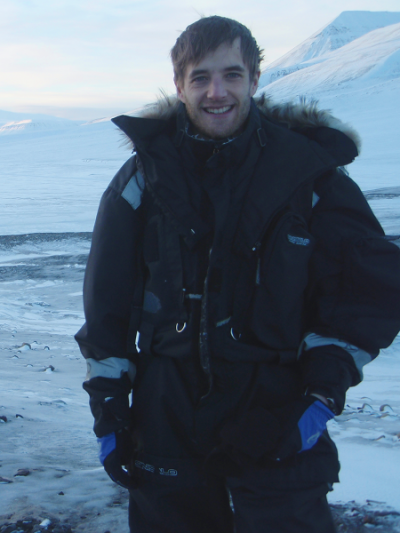
| Institution: | University of Bremen |
| Office: | NW1 N3200 |
| Telephone: | +49 421 218 62172 |
| Email: | [Bitte aktivieren Sie Javascript] |
| Website: | here |
| Project: | Sea ice concentration from merged passive microwave, optical, and SAR satellite observations |
Dmitrii Murashkin
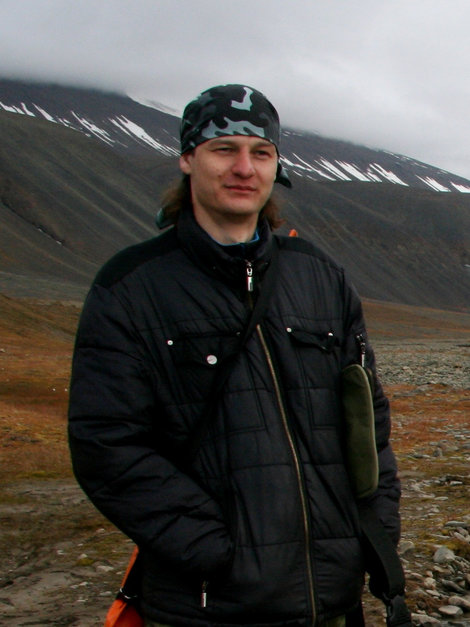
| Institution: | University of Bremen |
| Office: | NW1 N3200 |
| Telephone: | +49 421 218 62172 |
| Email: | [Bitte aktivieren Sie Javascript] |
| Website: | |
| Project: | Remote sensing of sea ice thickness and leads using radar altimetry, microwave and optical sensors |
Beatriz Recinos
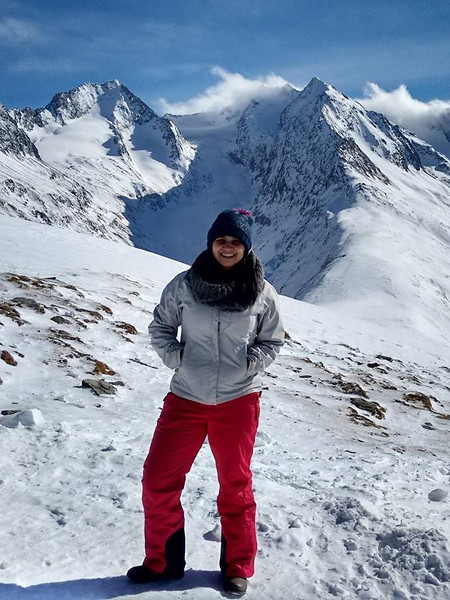
| Institution: | University of Bremen |
| Office: | FGV-M2050 |
| Telephone: | +49 421 218 67174 |
| Email: | [Bitte aktivieren Sie Javascript] |
| Website: | here |
| Project: | Ocean-glacier interaction on the large regional and global scale |
Being part of ArcTrain will allow me to meet the international glaciological community, and exchange my ideas and research with experts on the field. Sea level rise is a global problem, that will affect communities from all over the world and requires that all of us work together regardless where we come from.
Nicole Syring
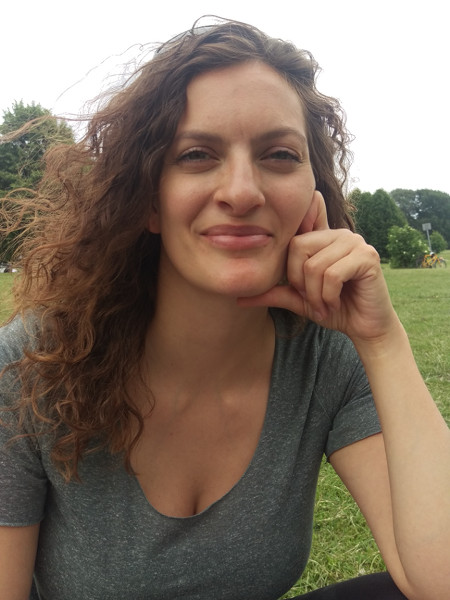
| Institution: | AWI |
| Office: | 1420 Building D |
| Telephone: | +49 471 4831 1572 |
| Email: | [Bitte aktivieren Sie Javascript] |
| Website: | here |
| Project: | Arctic Freshwater Discharge, Sea-Ice Formation, and Deglacial to Holocene Climate Variability - A Biomarker Approach |
Hello! I’m Nicole and happy to be an associated ArcTrain member! I studied marine geosciences at the University of Bremen and since June 2016 I am PhD student at the AWI. For my master thesis I went on an exciting excursion to central Spitsbergen in 2013 to reconstruct a shallow, warm-water carbonate platform from the Upper Carboniferous. Nowadays, arctic sea ice is my passion! Using the novel biomarker IP25, I would like to know more about the sea-ice variability during the last 20 ka off NE-Greenland and in the Mackenzie region. Combining this proxy with phytoplankton marker (PIP25) it allows me to receive even more information about the environmental conditions e.g. marin vs. terrestrial, primary production. I believe to highly benefit academically and personally from the participation in the ArcTrain program, which offers me the perfect platform to interact with international scientists working in the same research area!
Deniz Aydin
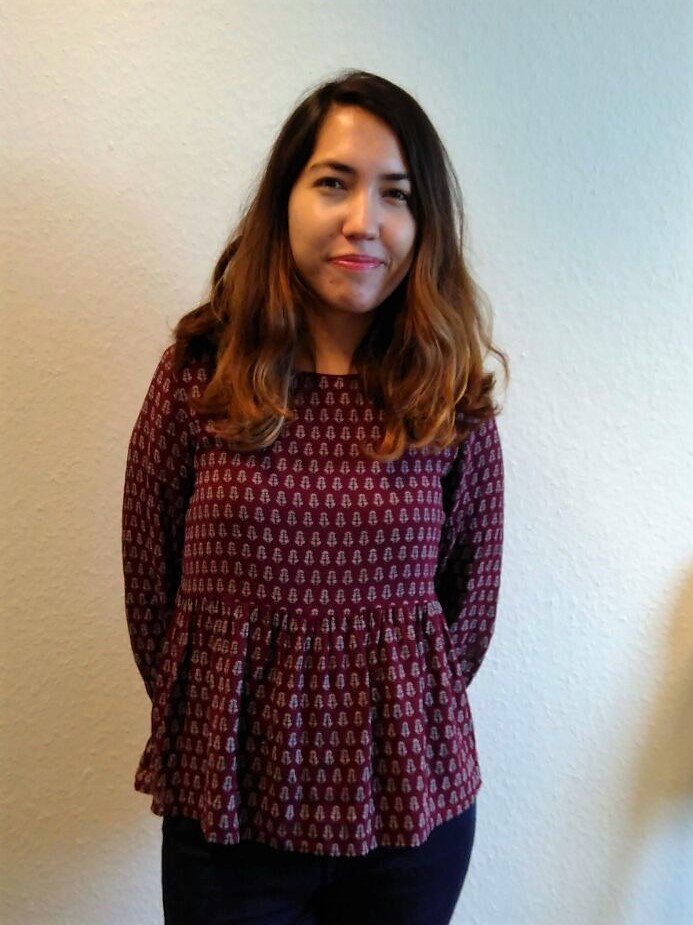
| Institution: | AWI |
| Office: | Klußmannstr. room 106 |
| Telephone: | +49 471 4831 2604 |
| Email: | [Bitte aktivieren Sie Javascript] |
| Website: | here |
| Project: |
Hi, I'm Deniz! I did my bachelor in civil engineering at Middle East Technical University (METU) in Turkey. I continued with master in the same department on coastal engineering. For my thesis I used a coupled wave-circulation model to study storm surge and resulted coastal flooding. For my PhD I moved further away from the land and now I'm studying the mixing in the Denmark Strait Overflow using a high resolution regional model. Being a part of ArcTrain gives me the opportunity meet with people working on different topics and allows me to learn about different research fields.
Junjie Wu
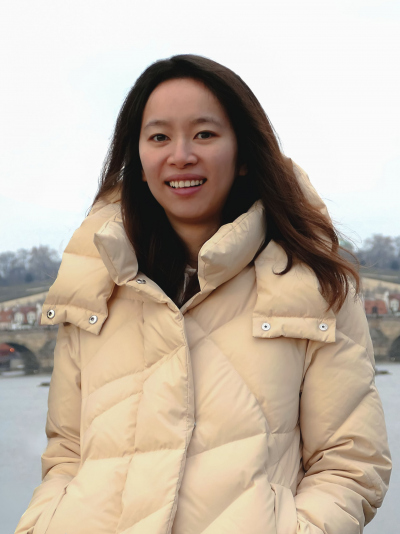
| Institution: | AWI |
| Office: | 1460 Building D |
| Telephone: | +49 471 4831 2206 |
| Email: | [Bitte aktivieren Sie Javascript] |
| Website: | here |
| Project: | Late Quaternary variability in sources, pathways and flux of organic carbon in Arctic Ocean sediments and its paleoenvironmental significance |
Hi, my name is Junjie! Originally coming from southern China, I did my B.Sc. and M.Sc. at Ocean University of China (OUC) in Qingdao. I’ve been working with biomarkers since my bachelor. For the bachelor and master theses, I reconstructed the sea surface temperature (SST) and phytoplankton primary production records with a time scale of the entire Holocene in the Yellow River. To broaden my knowledge of biomarkers and the climate-related changes in the Arctic Ocean, my PhD project focuses on multiproxy biomarker analyses in the Mackenzie region, with special emphasis on last ca. 15,000 years. Joining Arctrain offers me a great platform to advance the understanding of the Arctic Ocean, especially the Canadian Arctic. I believe my PhD project will benefit from the international and multidisciplinary program.
Luisa von Albedyll
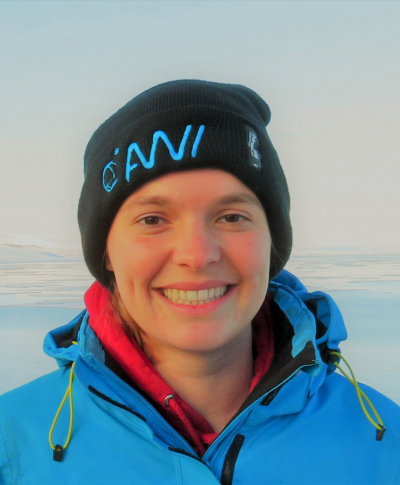
| Institution: | AWI |
| Office: | 0-17 Building G |
| Telephone: | +49 471 4831 2719 |
| Email: | [Bitte aktivieren Sie Javascript] |
| Website: | here |
| Project: | Sea ice deformation and sea ice thickness change |
I fell in love with the polar regions during my Arctic Geology studies at the University Centre in Svalbard. In my bachelor in geosciences, I explored polar sediment- and ice cores, that tell fascinating stories about former climate changes. An internship at the World Glacier Monitoring Service in Zürich introduced Greenland's glaciers to me. I continued to work on one of the largest outlet glaciers of Greenland during my master thesis, in which I focused on ocean-glacier interactions. During my master in Environmental Physics at the University of Bremen, I discovered the power of remote sensing for studying the remote polar regions. In my PhD at the Alfred Wegener Institute I use now remote sensing, but also in-situ measurements from buoys to address the question, how rifting, rafting, shearing and opening of sea ice impacts the thickness of sea ice. The different disciplines in ArcTrain offer me the great opportunity to continue like I started: to explore the polar regions from various perspectives.
Shettima Bukar
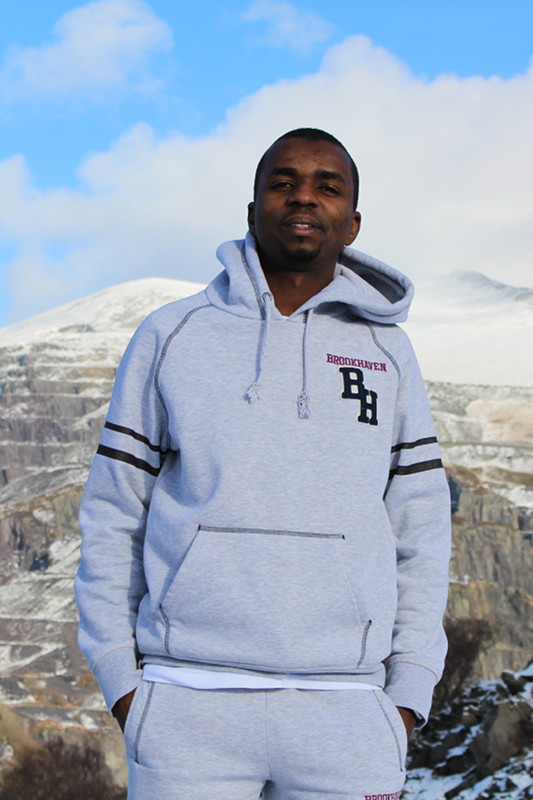
| Institution: | University of Bremen |
| Office: | GEO 4100 |
| Telephone: | +49 421 218 65313 |
| Email: | [Bitte aktivieren Sie Javascript] |
| Website: | here |
| Project: | Origin and dispersal of ice-rafted debris along the continental margins of Atlantic Canada in the Late Quaternary |
Hi, my name is Shettima Bukar and I'm from Nigeria. I studied Geology in my undergraduate and did my masters in Applied Marine Geoscience at Bangor University, UK. Generally, I developed a flair in the field of ocean sciences right after an undergraduate module I took titled Marine Geology. As such, I decided to go for the above mention masters program which is also an impetus that got me involved in the climate science discipline. My MSc. thesis titled "A Seismo‐Stratigraphic and Geochemical Investigation of Lake Tana, Ethiopia Over the Last 16.5 Ka" focused on the elucidation of the climatic condition of Lake Tana on the course of its evolution. In this project, I was introduced to so many fascinating and challenging stuffs that led me to undertake my PhD research topic "Origin and dispersal of ice-rafted debris along the continental margins of Atlantic Canada in the Late Quaternary" where I intend to use the Grand Banks cores acquired during the MSM39 cruise along with some the Labrador Sea and Baffin Bay cores (not yet certain). The research would be focused on investigating the Ice Rafted Debris found in the Heinrich Event layers (evidently observed in the core samples). Hence, classify their composition, determine the provenance of the debris and as well as their sedimentation rate in the interest of answering issues of source fingerprinting and iceberg dispersal and melting in the Labrador/Grand Banks region.
Bimochan Niraula
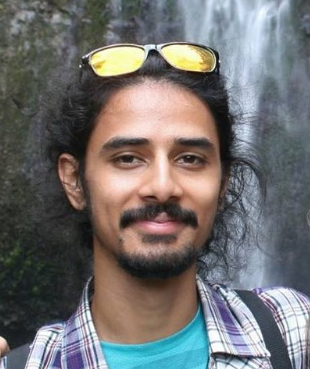
| Institution: | AWI |
| Office: | F-207 |
| Telephone: | +49 471 4831 1683 |
| Email: | [Bitte aktivieren Sie Javascript] |
| Website: | |
| Project: |
Hi! I am Bimochan Niraula (or Bimo). I did my BSc in Physics and my MSc with the department of Atmospheric and Oceanic Sciences, both at McGill University, Canada. For my MSc research, I studied volume and heat transport from the Atlantic Ocean to the Arctic through the gates at Fram Strait and Barents Sea Opening, which affects the sea-ice extent in the marginal seas of the Arctic. Further, I did an internship in the Numerical prediction research department of Environment and Climate Change Canada (ECCC) where I was looking at the verification of short-term sea-ice forecasts. Currently, I am a PhD candidate at the Alfred Wegener Institute, where I am working with Dr. Helge Goessling to study sea-ice predictions at months-to-seasons timescale. Increased accuracy of the sea-ice prediction at longer lead-times will be important for planning and safety purpose in the Arctic. The accuracy of current operational forecast systems decreases after a few weeks of lead time and we are attempting to improve this.
Wiebke Körtke
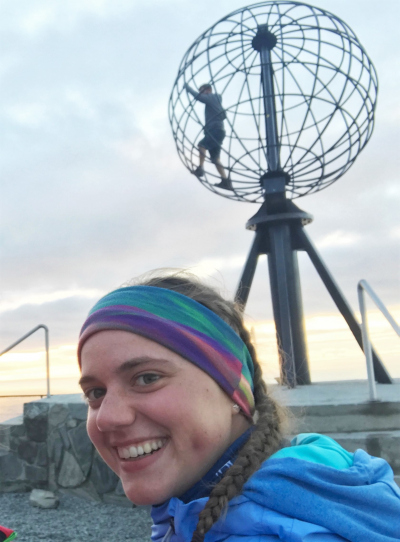
| Institution: | University of Bremen |
| Office: | NW1 M3200 |
| Telephone: | |
| Email: | [Bitte aktivieren Sie Javascript] |
| Website: | IUP MARUM |
| Project: | Tracer in an atlantifying Arctic Ocean |
Moin! My name is Wiebke and I’m currently doing my PhD at the University of Bremen. I did my Bachelor in Environmental Science in Oldenburg. Within the broad range of subjects, I discovered that the Ocean (and its processes) is really interesting. I joined the oceanography classes and took part in small research cruises on even smaller vessels. For the Master program I moved to Bremen to study Environmental Physics. I completed this degree with my master thesis about Atlantic Water in the Arctic Ocean and I am very happy to stay in the arctic polar region within my PhD project.
In my PhD project I will work on vertical fluxes in the Arctic Ocean. In recent years, this ocean is more and more influenced by inflowing Atlantic Water. I will use trace gas data from a cruise in Fram Strait, a region already strongly influenced by Atlantic Water, and data from the MOSAiC campaign, which took place in the central Arctic. With these trace gas data, I hope to gain results on the influence of atlantification on mixed layer processes in the Arctic Ocean.
ArcTrain is a great opportunity for me to get to know (young) scientists working on ocean-based topics in the Arctic region and to have interesting and helpful discussions.


